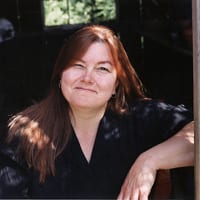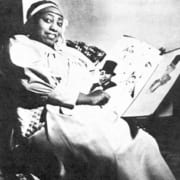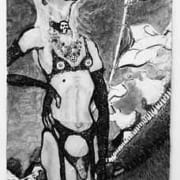Dorothy Allison
“I WEAR MY SKIN as thinly as I have to, armor myself only as much as seems absolutely necessary. I try to live naked in the world, unashamed even under attack, unafraid even though I know how much there is to fear. What I have always feared is being what people have thought me–my stepfather’s willing toy, my mother’s betrayer, my lover’s faithless tease, my family’s ultimate shame, the slutty, racist, stupid cracker dyke who doesn’t know what she is doing. Trying always to know what I am doing and why, choosing to be known as who I am–feminist, queer, working class, and proud of the work I do–is as tricky as it ever was. I tell myself that life is the long struggle to understand and love fully. That to keep faith with those who have literally saved my life and made it possible for me to imagine more than survival, I have to try constantly to understand more, love more fully, go more naked in order to make others as safe as I myself want to be. I want to live past my own death, as my mother does, in what I have made possible for others–my sisters, my son, my lover, my community–the people I believe in absolutely, men and women whom death does not stop, who honor the truth of each other’s stories.”
An excerpt from Skin, by Dorothy Allison
Proclaimed “one of the finest writers of her generation” by the Boston Globe and “simply stunning” by the New York Times Book Review, Dorothy Allison was born in Greenville, South Carolina and makes her home in Northern California. She lives with her partner Alix Layman, and her seven year old son, Wolf Michael.
Bastard Out of Carolina, Dorothy Allison’s first novel, was one of five finalists for the 1992 National Book Award. It went on to win both the Ferro Grumley and Bay Area Book Reviewers Awards for fiction. The novel has appeared in translation in French, German, Greek, Spanish, Norse, Chinese and Italian. A movie version of Bastard Out of Carolina directed by Angelica Huston premiered on Showtime in 1996.
Allison’s second novel, the critically acclaimed Cavedweller (Dutton, 1998), was a New York Times Best seller. Cavedweller won the 1998 Lambda Literary Award for fiction and was a finalist for the Lillian Smith Prize. It is currently being adapted for the stage by Kate Ryna.
A chapbook of Allison’s performance work, Two or Three Things I Know for Sure, was published by Dutton in September, 1995. Selected as a notable book of the year by the New York Times Book Review, the work was translated into a short documentary by Tina DiFeliciantonlo and Jane Wagner. The documentary entitled “Two or Three Things and Nothing for Sure” took prizes at the Aspen and Toronto film festivals, and premiered on PBS in the summer of 1998 as part of the acclaimed POV series.
Dorothy Allison’s small press books include Skin: Talking About Sex, Class and Literature (1995), a collection of Allison’s essays, speeches and performance pieces which won the 1995 American Library Association Gay and Lesbian Book Award, and Trash, a collection of short stories (1989) which won Lambda Literary Awards for Lesbian Fiction and Lesbian Small Press Book. She has published two editions of poetry, both titled The Women Who Hate Me-the first in 1983 by Long Haul Press and the expanded 1990 edition by Firebrand. The poetry chapbook has been continuously in print for more than twelve years. All her small press works remain available from Firebrand Books, which can be reached at 141 The Commons, Ithaca, NY 14850, or by phone at 607-272-0000.
In 1998, Allison founded The Independent Spirit Award, a prize given each year to an individual whose work with small presses and independent bookstores has helped to sustain that enterprise. The award, administered by the Astraea Foundation, is designed to encourage the people and institutions which are so vital to supporting new writers and to introducing readers to works that might otherwise go unheard and unread.
Allison is a member of the board of PEN International. She also serves on the Advisory board of the National Coalition Against Censorship and Feminists for Free Expression, and the advisory board of the James Tiptree Jr. Memorial Award, a prize which is presented annually to a science fiction or fantasy work that explores and expands on contemporary ideas of gender.
EXCERPTS
The Women Who Hate Me
God on their right shoulder
righteousness on their left,
the women who hate me never use words
like hate speak instead of nature
of the spirit not housed in the flesh
as if my body, a temple of sin,
didn’t mirror their own.
Their measured careful words echo
earlier coarser stuff say
What do you think you’re doing?
Who do you think you are?
From the title poem in The Women Who Hate Me, pg 23.
Bastard Out of Carolina
Family is family, but even love can’t keep people from eating at each other. Mama’s pride, Granny’s resentment that there should even be anything to consider shameful, my aunts’ fear and bitter humor, my uncles’ hard-mouthed contempt for anything that could not be handled with a shotgun or a two-by-four –all combined to grow my mama up fast and painfully. There was only one way to fight off the pity and hatefulness. Mama learned to laugh with them, before they could laugh at her, and to do it so well no one could be sure what she really thought or felt. She got a reputation for an easy smile and a sharp tongue, and using one to balance the other, she seemed friendly but distant. No one knew that she cried in the night for Lyle and her lost happiness, that under that biscuit-crust exterior she was all butter grief and hunger, that more than anything else in the world she wanted someone strong to love her like she loved her girls.
— From Bastard Out of Caroline, p. 10.
Skin: Talking about Sex, Class, and Literature
I have lived my life in pursuit of the remade world. ….
I believe in truth. I believe in truth denied any use of it can believe in it. I know its power. I know the threat it represents to a world constructed on lies.
I know the myths of the family that thread through our society’s literature, music, politics–and I know the reality. The reality is that for many of us family was as much the incubator of despair as the safe nurturing haven the myths promised. …. But I also believe in hope. ….
The worst thing done to us in the name of a civilized society is to label the truth of our lives material outside the legitimate subject matter of serious writers. ….
I need you to do more than survive. As writers, as revolutionaries, tell the truth, your truth in your own way. Do not buy into their system of censorship, imagining that if you drop this character or hide that emotion, you can slide through their blockades. Do not eat your heart out in the hope of pleasing them. The only hope you have, the only hope any of us has, is the remade life.
— Excerpts from “Survival is the Least of My Desires,” Skin, p. 211-216.
Two or Three Things I Know For Sure
I’m only supposed to tell one story at a time, one story. Every writing course I ever heard of said the same thing. Take one story, follow it through, beginning, middle, end. I don’t do that. I never do.
Behind the story I tell is the one I don’t.
Behind the story you hear is the one I wish I could make you hear.
Behind my carefully buttoned collar is my nakedness, the struggle to find clean
clothes, food, meaning, and money. Behind sex is rage, behind anger is love, behind this moment is silence, years of silence.
— From Two or Three Things I Know For Sure, p. 39.
Cavedweller
“Everybody is related to somebody,” Nolan would say to Cissy now and then, meaning not that everyone in Cayro was actually related, but that any story you heard was probably like the ones you had not heard, and much closer to your own life than you would want to admit–a tragedy almost surely if you looked at it properly or told it the way it should be told.
— From Cavedweller, p. 246.







